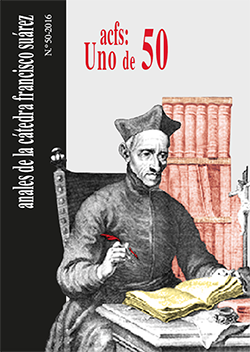Nova et Vetera (Ancient truths and modern disputes)
DOI:
https://doi.org/10.30827/acfs.v50i0.5158Keywords:
scholastic philosophy, positivism, historical and dialectical materialism, philosophy of law, history of thoughtAbstract
This work analyses what seems to be a perpetual crisis of human thought, when the fundamental mistake of attributing material significance to the world, excluding its moral significance, re-emerges from time to time. The history of human thought shows us how far what we consider as new ideas were in reality expressions from times long past, hence the importance of studying that past. Del Vecchio defends the value of scholastic philosophy, compared to the vagueness of modern philosophy of law and legal positivism, while rejecting as a proven error the historical and dialectical materialism of Marx’ theory. The author of the article believes that material things enter into social relationships as demands, inclinations and aspirations, but do not determine their rise, because the facts and relationships of social and political life are rooted in the human spirit.
Downloads
References
KOHLER, Rechtsgeschichte und Weltentwickelung (en “Zeitschrift für vergleichende Rechtwissenschaft”, V Bd., 1884.
Del Vecchio, “Materialismo económico y picologismo histórico como principios para la explicación de la dinámica social” en Revista Internacional de Sociología, Madrid, 1946.
Downloads
Published
How to Cite
Issue
Section
License
Authors are the owners of the rights to their works. ACFS requests that publication notice on ACFS is disclosed if they appear later in another place.

















